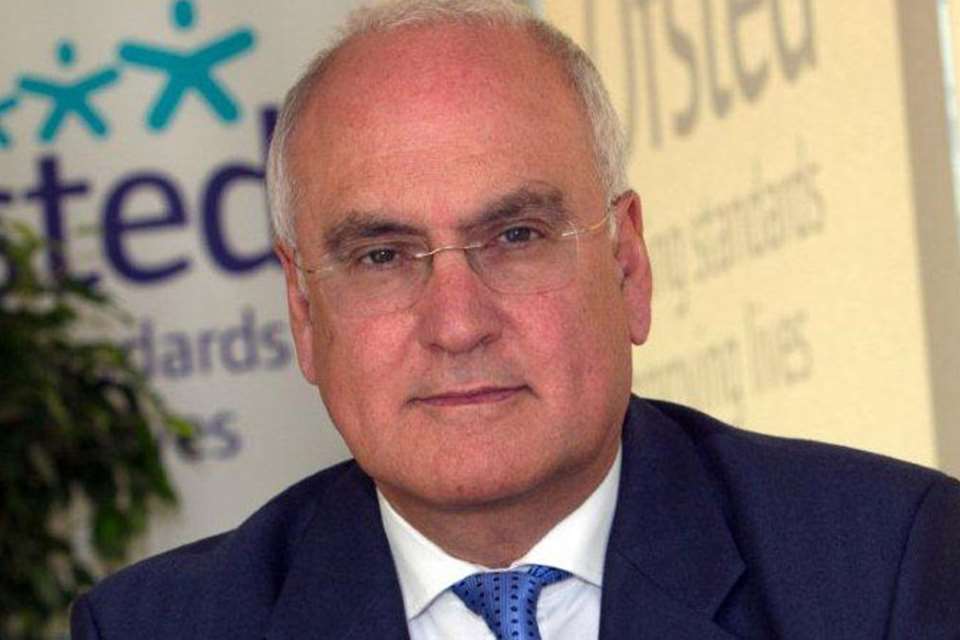Sector voices concerns over paid-for inspections
Monday, December 1, 2014
Nursery owners have stressed that paid-for inspections, while welcome, must not divert Ofsted from inspecting settings within the set timescales.

The move to bring in paid-for inspections was discussed at Ofsted's National Consultative Forum, where the inspectorate revealed the introduction of paid-for inspections has been held up by next year's general election, but that their likely cost would be £1,300 for childminders and £2,500 for nurseries.
It is understood that early years settings with historic 'satisfactory' grades or the new 'requires improvement' judgement that want a paid-for inspection would be prioritised by Ofsted.
Currently, early years settings judged as requires improvement can be left waiting for a year for a re-inspection, potentially locking them out of access to funding for two-year-old places.
While providers and organisations have campaigned for the right to request re-inspections, many are concerned that they could take inspectors away from carrying out their statutory duty, particularly because of reports from the sector that there are still significant delays to inspections.
 June O'Sullivan, chief executive of the London Early Years Foundation (LEYF) and spokesperson for the Ofsted Big Conversation (OBC), said, 'If people want paid-for inspections then fine, but there has to be the proviso that Ofsted meets it own timescales.
June O'Sullivan, chief executive of the London Early Years Foundation (LEYF) and spokesperson for the Ofsted Big Conversation (OBC), said, 'If people want paid-for inspections then fine, but there has to be the proviso that Ofsted meets it own timescales.
'We should not have to pay for inspections that are overdue and all resources should be directed into getting everyone their inspection on a timely basis.'
In September, independent early years trainer Debbie Alcock, a former regulatory Ofsted inspector, told Nursery World that some settings have to wait nine years between inspections if they are inspected at the beginning of an inspection cycle and graded 'outstanding' or 'good', because an inspection cycle runs for five years.
 Catriona Nason, director of consultancy Daycare Doctor, echoed Ms O'Sullivan's thoughts, questioning how Ofsted will ensure paid-for inspections are not prioritised over inspections that are overdue.
Catriona Nason, director of consultancy Daycare Doctor, echoed Ms O'Sullivan's thoughts, questioning how Ofsted will ensure paid-for inspections are not prioritised over inspections that are overdue.
She also raised a number of other issues, including how many times providers could request a paid-for inspection and over what time period, along with pointing out that the move could leave Ofsted vulnerable to legal action if a setting has another inspection months after the previous one and gets a different outcome.
The proposed cost of inspections has also faced criticism by the sector because some believe it will create an unfair playing field.
 Neil Leitch, chief executive of the Pre-School Learning Alliance (PLA) said, 'The alliance has long called for this option to be made available to early years providers. As such, we welcome this change.
Neil Leitch, chief executive of the Pre-School Learning Alliance (PLA) said, 'The alliance has long called for this option to be made available to early years providers. As such, we welcome this change.
'That said, we would be very concerned if Ofsted was planning to set the cost of paid-for inspections at the level suggested, as clearly this would be likely to prohibit many settings, particularly smaller settings, from making use of this option.
'This would also be true of childminders. Given that Ofsted has previously confirmed that individual childminder inspections cost just over £700 on average, there would appear to be no justification for the fee level that has been proposed.'
Liz Bayram, chief executive of PACEY, also said she thought the proposed costs are 'extremely high', particularly for childminders and other smaller childcare settings. She added, 'Before the next election, Ofsted must look to improve inspection timescales and reliability so settings aren't faced with a stark choice of spending significant funds on a paid-for re-inspection or playing the waiting game.
'With the financial pressures all childcare professionals are facing, it is vitally important that paid-for re-inspection remains the exception, not the norm. The sector needs Ofsted to make real commitments to improving both the timing and quality of its inspections.'
 However, Clare Roberts, chief executive of Kids Planet day nurseries, a group of 12 settings, said that if Ofsted made the cost of an inspection too low, then everyone would want one, which would be problematic.
However, Clare Roberts, chief executive of Kids Planet day nurseries, a group of 12 settings, said that if Ofsted made the cost of an inspection too low, then everyone would want one, which would be problematic.
She went on to say that she thought paying for an inspection would be worth doing for settings that are graded as satisfactory or requires improvement, as having this grade can have a big impact on business.
Ms Roberts suggested that the cost of the re-inspection could come out of nurseries' marketing budgets.
Purnima Tanuku, chief executive of the National Day Nurseries Association also took the view that while cost could be a factor, a low Ofsted rating could also prove costly to a setting.
She said, ' A good or better grading is often vital to market a nursery effectively.
'Ideally nurseries would like prompt re-inspection, however rather than risk an extended wait for their next routine inspection, many will see paid for inspection as a sensible investment.'
Ms Nason said that the issues surrounding the cost of paid-for inspections could present an opportunity for insurance companies, with nurseries' and childminders' premiums covering them for re-inspection.
No-notice inspections
Ofsted also revealed at its forum that it is looking into giving nurseries half a day's notice ahead of an inspection to put them in line with schools, but that it would retain the right to carry out no-notice inspections.
Purnima Tanuku, chief executive of the NDNA, said, 'It is high time that Ofsted addresses the longstanding unfairness of PVI nurseries being subject to no-notice inspection, while schools get notice. Currently schools get notice the day before inspection and we will be urging Ofsted in the strongest terms to follow through on its proposal and give equal notice to all. While this short notice should apply in routine inspection, we support fully the right of Ofsted to inspect any school or early years provider at no notice where there is a concern - this is vital to safeguard children.'
Ms Roberts told Nursery World that receiving notice of an inspection would be beneficial when a nursery manager is on holiday or away from the setting.
She said there have been several occasions when an Ofsted inspector has turned up at one of her nurseries and the manager was on annual leave 'in this country, or in a meeting' and rushed back. However, Ms O'Sullivan and Ms Nason both prefer no-notice inspections over the alternative.
Ms O'Sullivan argued that there would be no benefit in half a day's notice, because it does not give nurseries a lot of time if a manager is on holiday.
Ms Nason said, 'The worry is that nurseries that aren't are of high quality will have time to hide things if given half a day's notice.'
Registration visit
In other moves, Ofsted is considering no longer carrying out registration visits at new nurseries that are being opened by a provider with a strong history of safeguarding processes with which Ofsted is very familiar.
The proposed move follows the decision by Ofsted to change the timescale of post-registration inspections from within seven months of a setting opening to within 30 months.
Mr Leitch of the PLA said he is extremely concerned by any plans to relax the current approach to registration visits.
'Registration visits are an essential part of an effective inspection process, and the fact that an organisation has a strong history of safeguarding processes would in no way justify its removal.'
His thoughts were echoed by Ms Tanuku of the NDNA, who warned that the new approach must be 'exercised with great caution and thorough risk assessment.'
In contrast, Ms Roberts said she thought removing registration visits for providers with a strong track record is a good idea, particularly when opening or re-registering a number of settings within a few months of each other, as has been the case with Kids Planet.
'I've always found it frustrating chasing Ofsted for registration visits, which always cover the same things and take about three hours,' she said.
Common inspection framework proposal
Another topic discussed at the forum was Ofsted's proposals for a new framework for the inspection of maintained schools, academies, further education and skills providers and registered early years settings, currently out for consultation until 5 December.
Under the new proposed framework, Better Inspection for All, settings will be inspected every three years, and against four common judgements:
- Leadership and management
- Teaching, learning and assessment
- Personal development, behaviour and welfare
- Outcomes for children and learners with greater emphasis on safeguarding and curriculum.
The inspectorate is also planning on piloting the framework with a number of 'good' settings, including childminders.
According to Ms O'Sullivan of LEYF, while the sector agrees with the broad principles of a common inspection framework, there is anxiety about how this will be interpreted into a single set of inspection criteria and consistent inspections, as inspections will be more frequent, but shorter.
Early Years pupil premium
On the new Early Years Pupil Premium (EYPP), Ofsted said how settings use the EYPP - worth £300 per eligible child per year - will be measured as part of the leadership judgement from April 2015. Nurseries and childminders will need to show evidence of impact.
Suggestions of how the funding could be used include a group of childminders pooling their money to pay for a speech and language therapist or a nursery purchasing specialist equipment.







